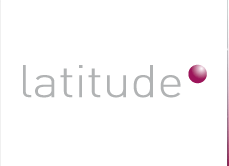Case studies
Boosting export competitiveness through market intelligence
Our client, a trade-related governmental agency in the Caribbean, had the challenge to develop initiatives aimed at supporting exporters identify and target attractive markets. Following a needs assessment, a top priority defined was building exporters’ market intelligence capabilities to develop stronger firm-level competences when looking at export markets.
For that purpose, we developed a four-day capacity building workshop integrating elements of market intelligence and export strategy. The aim of the workshop was two-fold: to create awareness on the importance of market intelligence in developing a successful export strategy and to address the key challenges facing the particular exporters from that country. Our approach combined a detailed analysis of the country’s trade performance, relative position, challenges and opportunities, with a structured process to conduct market intelligence that contemplated trade analysis tools and trainings, as well as project assignments to accelerate the learning process.
Making the leap to the “next level”
Following several years of success in the Scandinavian market, our client, an affordable luxury leisure accessories company was ready to continue international expansion and establish a more important presence in some key European and US markets. As trends in the industry call for differentiated design, collaborations between fashion designers and sports manufacturers and new retail concepts, our client had to face challenges such as upgrading their product lines, entering new markets and re-thinking their own stores concept.
Latitude’s approach to our client’s challenges involved three phases. The first phase consisted on understanding the industry, the trends impacting manufacturers, consumers and retailers, as well as understanding what where the challenges for our clients. We also analyzed their competitive position and performed an industry mapping identifying different groups of players. That analysis was used at a management strategy session in which the process included an “outside in” and an “inside out” perspective, combined with choice framing and priority setting models to assist management identify their strategic priorities.
The last part of the process consisted on cascading and challenging the initial priorities identified by the top leadership, to then move on to designing the action plans to address them.
Executive Education:
Corporate Social Responsibility in the Global Corporation
The HEC School of Business in Paris was planning to address the issue of corporate social responsibility in global companies in its Executive MBA Program. As part of this initiative, Latitude was engaged to design a week of immersion on the issue, integrating diverse learning approaches such as topic experts and academic presentations, perspectives from the private sector and NGOs, around a live case study on the sustainability practices across the value chain of a leading global company. The company chosen for this case was Carrefour, and the title chosen was: “Creating Value through Sustainability”. The case was illustrated by inputs from Carrefour management presenting and discussing the sustainability strategy in relation to their area of work, as well as senior executives overseeing corporate social responsibility at the group level. Combining the various case inputs and their own insights, participants were challenged, in working groups, to propose to the company strategic initiatives integrating sustainability considerations in four topics: sustainable marketing innovation, measurements and communications, supplier relations and people and culture. The HEC EMBA Executive Campus brings together 200 participants from four EMBA modules.
We invite you to browse the pages of the HEC Paris Summary Report: “Creating Value through Sustainability” to learn more about this project.
Executive Education: Creating Sustainable Value
For the last two years, the University of Lausanne has been relying on Latitude for the design and delivery of their Executive MBA’s Introductory Week. While previous years were dedicated to issues like ethical trade through the case of Cambodian silk manufacturing, and to the case of Starbucks and its sustainable supply practices, more recently the program focused on Sustainability across the value chain analyzing the case of Nespresso. The program was delivered over 3 days, during which case and topic inputs were combined with team building activities and diversity trainings to give a first taste of the intensity and components of such program.
The program also incorporated a coffee tasting session and a visit to a Nespresso boutique after hours; activities aimed at building a deeper understanding of the product and the consumer experience the company aspires to create.
Participants’ assignments consisted on analyzing and identifying sustainability challenges and opportunities across the value chain, to then develop and propose sustainability-related initiatives across the different links of the value chain.
For further information on this project, we invite you to browse a brief overview of the project and its agenda.
Lifestyle and luxury: An alternative player in an industry of giants
One of the toughest challenges a global fragrances company was facing was to accelerate growth by leveraging from its market position as a niche player and to avoid being squeezed by the industry leaders, in a consolidating industry.
In cooperation with the IMD School of Business, we designed a program integrating industry and competitive analysis, a relative position and capabilities assessment to understand the current reality of the company and its operating environment. The second part of this process consisted on a series of ideation sessions with the company’s top 60 global leadership to develop the new vision, desired market position and set targets. Using portfolio and choice models, as well as tools to identify attractive markets, management identified the priority initiatives as well as the market development strategies.
Our role consisted on designing and articulating the process, conducting and integrating analysis and inputs from diverse offices and divisions, developing specific inputs for the ideation sessions and providing support to management throughout the entire process.




